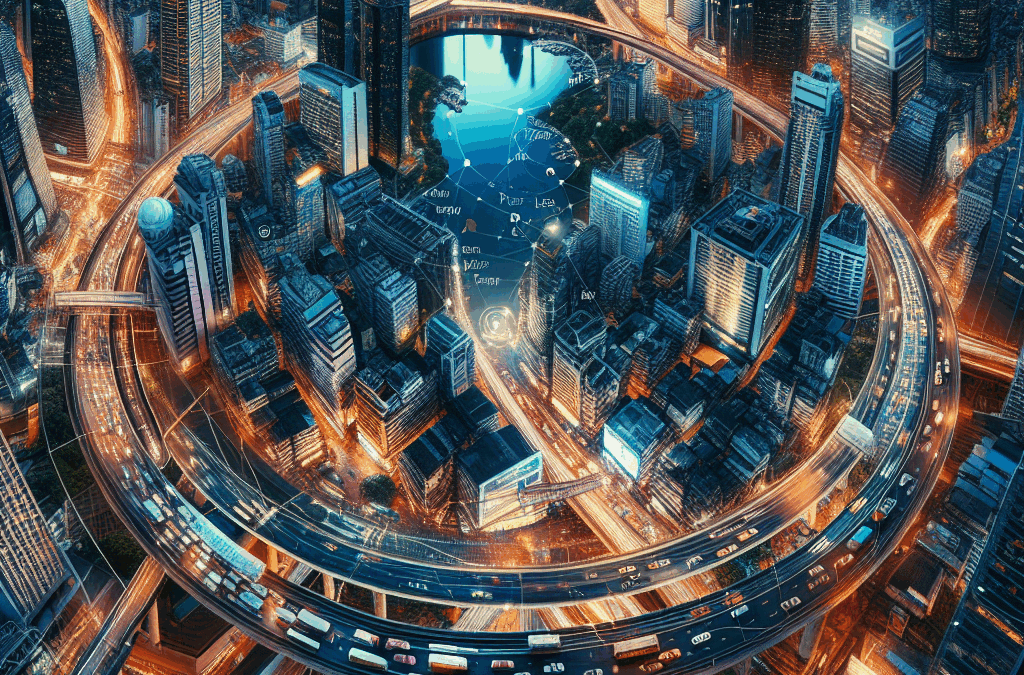1. Awareness of Your Surroundings
Stay Observant
One of the most critical aspects of urban survival is being aware of what’s happening around you. I’ve found that simply tuning into my environment can make a significant difference. When I walk down a busy street, I take a moment to observe the people, their behavior, and any unusual activities. This awareness can alert you to potential dangers or changes in your surroundings, allowing you to react quickly.
Pay attention to common patterns in your area. What does a regular day look like? By understanding the normal, it’s easier to spot the abnormal. For instance, if you notice a commotion someplace that’s typically quiet, it can help prompt you to stay cautious and perhaps avoid that route altogether.
Lastly, don’t just use your eyes. Trust your instincts and listen to your gut feelings. If something feels off, it probably is, so take that intuition seriously. I’ve personally avoided potentially risky situations just by immediately responding to my gut check.
2. Building a Personal Safety Plan
Create Emergency Contacts
It’s vital to have a plan in place for emergencies. My first step was creating a list of emergency contacts – close friends, family, and even a few trusted neighbors. This way, I know exactly who to reach out to in case something unexpected happens. It’s a simple yet effective measure that offers peace of mind.
Include important information like medical contacts or local emergency services in your plan. I also made sure to have several ways to get in touch—whether it’s through phone or messaging app. Being prepared means I can quickly get assistance if I need it.
Moreover, practicing your plan is just as important. I often go through it in my head and even do little drills if I’m with family or friends. It helps keep everyone sharp and reminds us how to stay connected if something goes down.
Thank you for reading this post, don't forget to subscribe NOW for FREE!
3. Learn Basic Self-Defense
Find a Local Class
I can’t stress enough how beneficial it is to know some self-defense techniques. Finding a local class has been one of the best decisions. Not only do I learn physical skills, but I’ve also been able to connect with a community of like-minded individuals who want to empower themselves.
Even if you can’t commit to a class, there are so many online resources available. I started by watching videos and practicing some moves in my living room. It’s fun and super helpful, even if you can just learn the basics of how to escape a situation safely.
Self-defense isn’t just about the physical techniques, though. It’s also about building confidence. Knowing that I can defend myself if the situation calls for it has changed how I navigate my urban jungle—I feel empowered rather than frightened.
4. Familiarity with Your Routes
Know Alternative Paths
Living in an urban setting, it’s essential to know your routes. I always map out multiple ways to get to work or home. If there’s an incident like a road closure or construction, having alternatives makes life so much easier and safer.
I often practice navigating these paths, which helps me feel more secure in my choices. Plus, it’s kind of an adventure! I sometimes discover new neighborhoods or little cafes along the way that I might otherwise miss.
On top of knowing your paths, try to get familiar with spots that can provide shelter or assistance, like stores or public places. This knowledge can be a lifesaver in unexpected situations where you might need help quickly.
5. Stay Prepared with Essential Supplies
Personal Emergency Kit
One of the best pieces of advice I ever received was to have an emergency kit ready. I’ve put together a small bag with essentials like water, snacks, a first-aid kit, and sometimes even a flashlight. Keeping this on me—whether I’m heading to work or just out and about—gives me peace of mind.
I also tailor my kit to suit my daily needs. For example, if I know I’ll be out late, I might pack some cash, a portable charger for my phone, and maybe even a blanket. It’s all about being prepared for whatever might happen.
Lastly, check your kit regularly. I set a reminder on my calendar to make sure everything is stocked and up to date. Life can throw curveballs, and it helps to have your bases covered!
Frequently Asked Questions
1. Why is situational awareness so important?
Situational awareness keeps you alert to your surroundings, enabling you to spot potential dangers. It helps you avoid risky situations and react appropriately if something unexpected occurs.
2. How can I build a personal safety plan effectively?
Start by listing key contacts and emergency services. Also, practice your plan regularly with your contacts to ensure everyone knows what to do in case of an emergency.
3. Do I really need to learn self-defense?
Absolutely! Knowing basic self-defense can boost your confidence and give you the ability to protect yourself if necessary. It’s about empowerment and preparedness.
4. What should I include in my emergency kit?
Your emergency kit should include water, food, a first-aid kit, a flashlight, and any personal items you might need, like medication or cash. Tailor the kit to suit your lifestyle and specific needs.
5. How can I discover new paths in my city?
Take time to explore your city on foot or by bike. Utilize maps and apps to discover alternate routes. It’s not only beneficial for safety but can also be a fun way to experience your urban environment.






